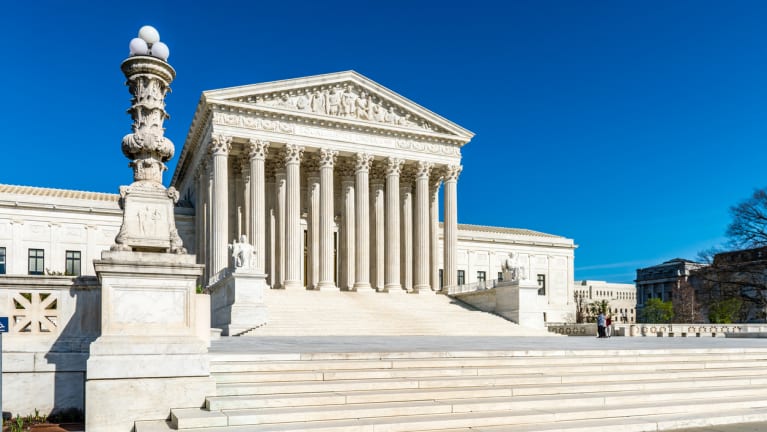
A worker whose disability benefits claim was denied by the U.S. Railroad Retirement Board could seek review in federal court of the board's decision not to reopen his claim, according to the U.S. Supreme Court.
"Judicial review plays a modest, but important, role in guarding against decisions that are arbitrary, inconsistent with the standards set by the board's own regulations, or otherwise contrary to law," wrote Justice Sonia Sotomayor for the majority.
We've rounded up resources and articles from trusted outlets on the news.
Background
The plaintiff in the case, a former Union Pacific Railroad employee, suffered multiple on-the-job injuries that required spinal surgery. His disability claims under the Railroad Retirement Act (RRA) were initially denied, but one claim was later granted. The plaintiff sought to reopen another denied claim because he had additional evidence, but the Railroad Retirement Board declined to reopen the claim. The plaintiff challenged the decision in federal court and the 5th U.S. Circuit Court of Appeals ultimately dismissed his case. The appeals court said the board's denial of a request to reopen a disability determination is not subject to judicial review. A majority of federal appeals courts have ruled the same way.
Supreme Court Reverses
The Supreme Court reversed the 5th Circuit's ruling in a 5-4 decision on Feb. 3. Sotomayor explained that the relevant provision of the RRA makes judicial review available to the same extent that review is available under the Railroad Unemployment Insurance Act (RUIA). The RUIA allows for judicial review "of any final decision of the board." The Supreme Court said that "any final decision" refers to "some kind of terminal event" and an agency action "by which rights or obligations have been determined or from which legal consequences will flow." The high court said the Railroad Retirement Board's denial was the "terminal event" in its administrative review process and the denial affected rights and obligations under the RRA. Therefore, the board's denial was subject to judicial review. Chief Justice John Roberts and Justices Stephen Breyer, Elena Kagan and Brett Kavanaugh joined the majority opinion.
Dissent Challenges Reliance on Different Statute
Justice Clarence Thomas wrote a dissenting opinion challenging the majority's reliance on the RUIA. "[T]hough the RRA references the RUIA to explain how to obtain judicial review, it defines separately what may be reviewed—the key issue here," he wrote. The majority didn't consider "whether the board's decision here determined any right or liability at all," he said. "It did not." Thomas stated that neither the RRA nor the RUIA provides a statutory right to reopen a proceeding. "And the regulations that create reopening procedures make clear that no one has a right to that proceeding." Justices Samuel Alito, Amy Coney Barrett and Neil Gorsuch joined the dissent.
Understanding the Railroad Retirement Act
The RRA replaced the Social Security Act for employers and workers in the railroad industry. The act provides monthly annuities for employees based on their age and years of service or on disability status. The Railroad Retirement Board, which administers the RRA, is an independent agency under the executive branch of the federal government. The board does not oversee private pension plans.